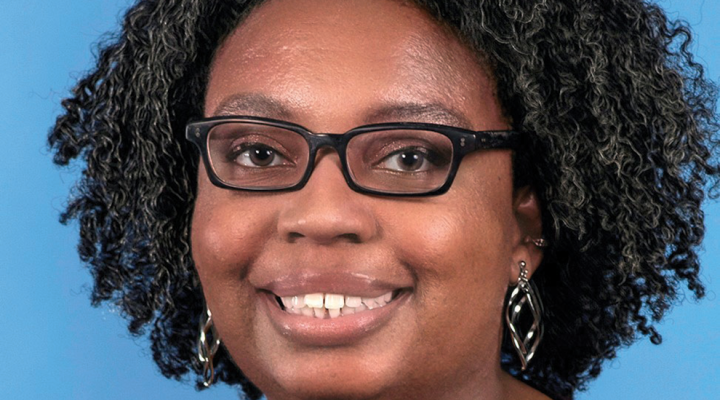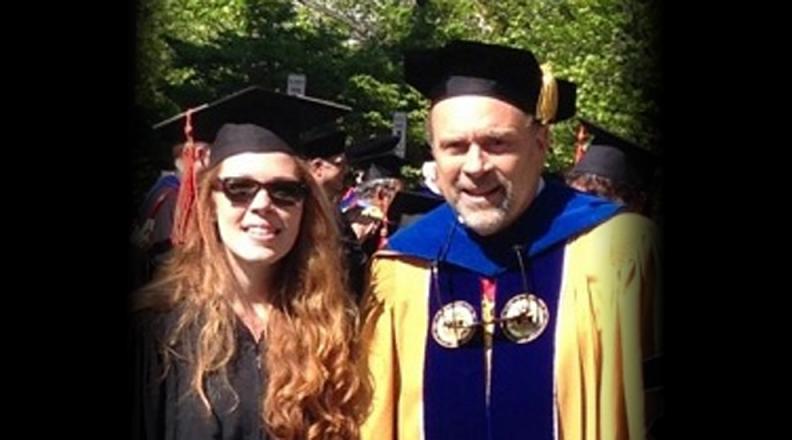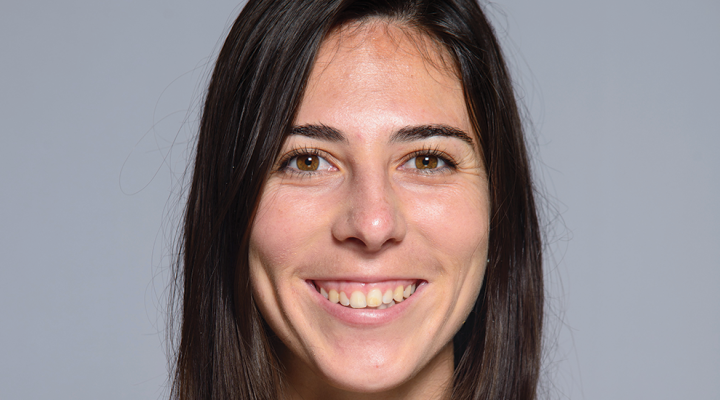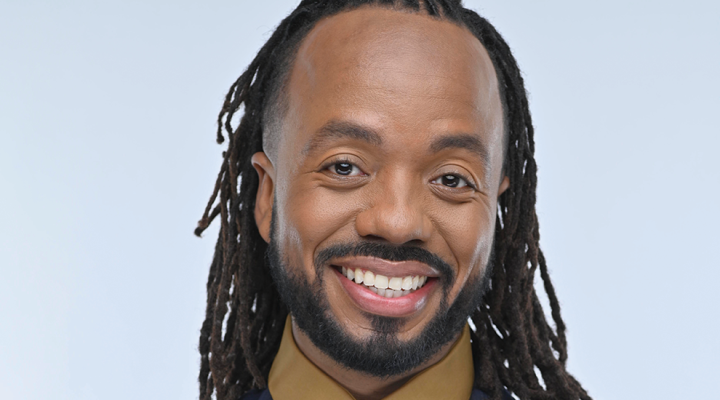By Chris Dawson
If you are an engineering major at Cornell, there will be times that are hard. Maybe for you it’s the Statics and Mechanics of Solids class. Or it could be Introductory Quantum Mechanics. Maybe it’s the fact that everyone else in class seems to understand the material and you feel utterly lost. It could be three prelims in three days.
For Chaney Miller ’14 CEE it was freshman year. “I got to Cornell without taking a physics class before,” says Miller, who was admitted to Cornell in the College of Arts & Sciences. But before arriving on campus, she enrolled in engineering courses instead. When she changed paths to transfer into civil engineering, she had to take several physics courses with no foundation in the subject. “I felt like giving up something like eight times that semester,” says Miller. “But I am hard-headed and I saw it as a challenge so I stuck with it.”
When these hard times hit, people develop all sorts of survival strategies. Some find a tutor; some simply sleep less and study more; some drop the class. Miller did something most students don’t have as an option: she started an office-hours-style homework club with her dad.
Chaney Miller’s dad is Cornell Engineering Professor of Mechanical and Aerospace Engineering Matt Miller. “When she was young,” says Professor Miller in his office at the Cornell High Energy Synchrotron Source (CHESS), “Chaney would sit with me while I graded exams and she would always ask what the problems were that I was asking my students to do. She also asked all the time about how many of my students were boys and how many were girls.”
As the two sit in Professor Miller’s office and tell their story, it is clear that they like and respect each other. They listen to each other; they don’t interrupt; they support each other; they seem like colleagues as much as like father and adult daughter. They seem like a team.
“That was when I felt most useful to Chaney,” says Matt Miller. “I had some experience of what it’s like to be an engineering student. I could reassure Chaney that everyone in that class went through something similar. It gets hard for everyone at some point.”
“It was reassuring for me,” chimes in Chaney. “I had my dad here for reality checks and it helped me get perspective and grow as a student, and ultimately, as a person. I didn’t give up and the end result was worth all the hard work.”
Almost as if Matt hears the word “team” echoing through the interviewer’s mind, he talks a bit about his history. “Neither of my parents went to college. I grew up in rural Durango, Colorado. My parents built a hotel there.” As he says this, Miller intertwines his fingers and folds his large hands in front of him. “I played football in high school and my coaches were very supportive. They believed in my talent and told me I needed to go somewhere bigger to play football. I really liked the feeling of being part of a team. It still means a lot and I take it seriously.”
Chaney Miller made it through to her undergraduate degree in civil engineering and moved to Dallas two days after graduation. She started work right away with a civil engineering firm. She was the first female engineer at the firm. She worked there for a few years and then decided to make a change. “I wanted a job that had a better balance for me,” says Chaney. “I was more interested in the business development aspect of my engineering role, so I wanted more contact with people and questioned if that role should be in engineering at all.” She left the firm and took a job with Oracle as a Technology Account Executive. “Engineering firms need to work their relationships and drum up business and that is what I do now. I have to say, any success I have had in my current career, I can draw a line straight back to my education at Cornell--learning to think like an engineer and to be a solid part of a team.”
As Chaney Miller talks, her dad nods his head in agreement. After high school, he took his coaches’ advice and went on to play both college and professional football. “I still love being part of a team dedicated to something bigger,” he says. “At Cornell, the thing we produce here is our students and I love being a part of that process. It is great to see the people who pass through on their way to bigger and better things. It is exciting for me to play a role in that process. We get these unbelievable students who come here. They push me to be a better teacher. I think I have the best job in the world.”
“That’s also what I like so much about working at CHESS,” adds Miller. “The director, Joel Brock, and the former director, Sol Gruner, really emphasize consensus. CHESS is a very flat organization—not top-down at all. Because of that there is an enormous amount of buy-in from the people who work here. I get the feeling that every person working at CHESS shows up with a ‘what can I do today to make CHESS better?’ attitude. A saying that has been used in team sports from the beginning of time is 'Big TEAM little me' and that feeling permeates the air at CHESS."
Matt Miller’s research at CHESS focuses on solid mechanics and the mechanical behavior of metals, engineering alloys, composites and semiconductors. Specific areas of focus for Miller include crystal stress measurements, microplasticity, fatigue crack initiation, high temperature behavior of superalloys, mechanical behavior of silicon, design and implementation of new in situ experiments with synchrotron X-rays, and multiscale model development and validation.
Put more simply, Matt Miller looks closely at structural materials to figure out exactly how they fail. Long before a copper, aluminum, beryllium or titanium alloy material shows signs of wear visible to the naked eye, mechanical stresses and strains at the crystal level begin to damage the material. Miller and his students work to create tools and experiments that enable the design and selection of structural materials best suited to a particular use. Much of his focus is on the use of synchrotron X-rays and in situ mechanical loading to understand exactly what is happening when materials are under stress. His work deepens our understanding of a broad range of materials and contributes to the development of new materials with specific properties.
In addition to his research, Matt Miller is seriously committed to his role as a mentor. It is obvious with his daughter Chaney. But it is also obvious to his students and peers. Miller has won several teaching and advising awards for excellence in his time at the Sibley School of Mechanical and Aerospace Engineering at Cornell. He has also been instrumental in arranging visits for students from Fort Lewis College in Durango. These students come to Cornell and learn about the Cornell High Energy Synchrotron Source and some of its capabilities. “They get a chance to use the beam and determine properties of various materials and then determine their best uses,” says Miller. “It also helps these students understand that grad school is an option.”
Miller has come to rely so much on the synchrotron in his research that he is now the associate director of CHESS. “As a professor in a research institution like Cornell, you have to be entrepreneurial,” says Miller. “Your research is your company and you need to find a niche for yourself and your work. I feel like I have found mine here. At Cornell I have felt encouraged to take risks and swing for the fences, which really suits me. Whatever I end up doing, I go all out.”
As Matt Miller speaks he cannot see the smile of recognition spread across his daughter’s face. But he can certainly hear her when she says “It’s annoying how similar I am to my dad.”
It’s easy to get the sense that Chaney Miller is not really annoyed by this at all.





